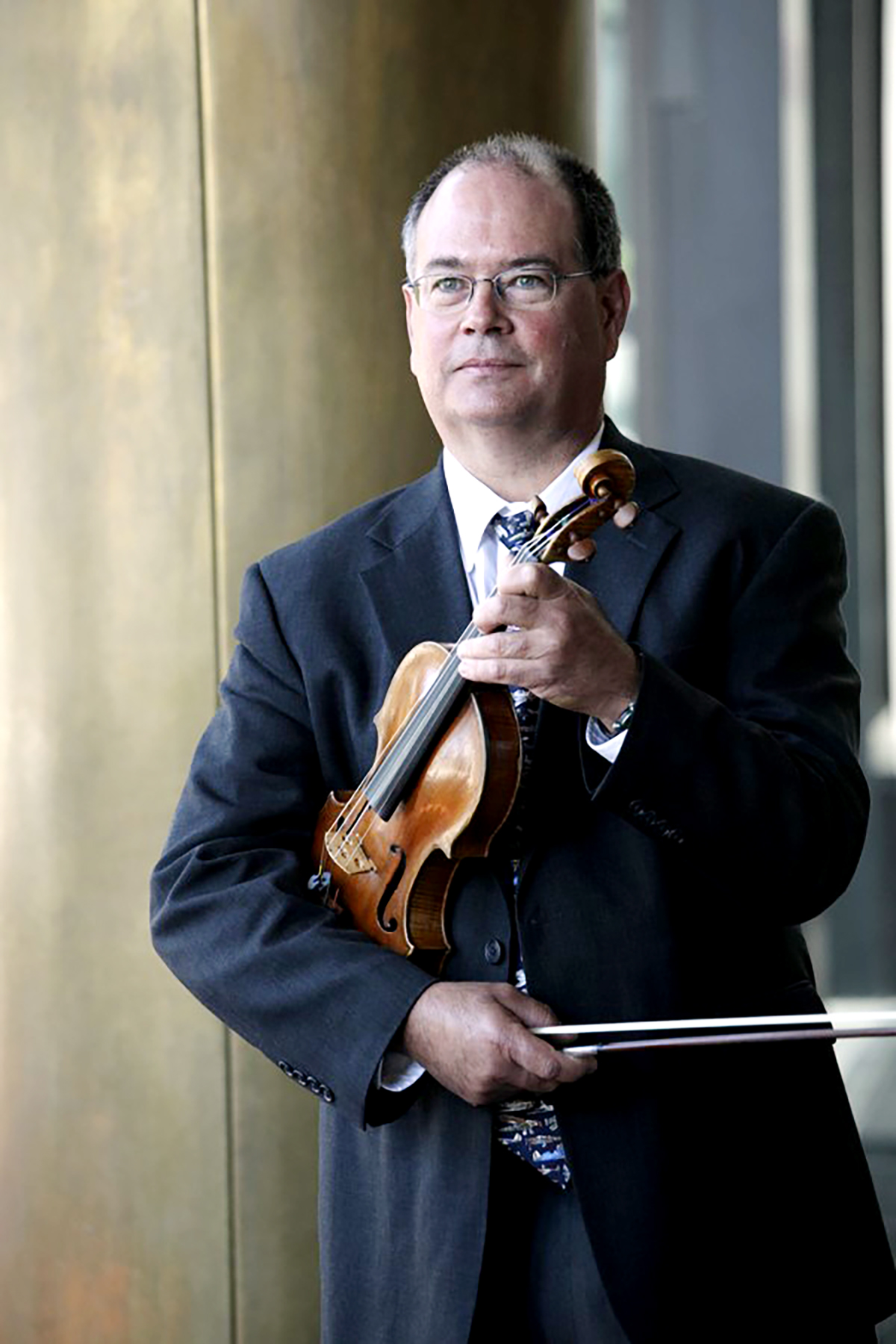Every time Chautauqua Symphony Orchestra concertmaster Brian Reagin revisits Ernest Chausson’s “Poème,” op. 25, he says it’s like riding a bicycle.
It’s sort of a dark joke, considering Chausson supposedly died from slamming into a brick wall while riding a bicycle.
Reagin, first violin and Mischakoff/Taylor Concertmaster Chair, will perform the work with the CSO at 8:15 p.m. Thursday in the Amphitheater. The program, under the direction of guest conductor Giancarlo Guerrero, will also include Felix Mendelssohn’s Symphony No. 3 in A minor, nicknamed the “Scottish,” and Jean Sibelius’ “Finlandia,” op. 26.

“It’s a pretty standard violin solo,” Reagin said. “Most of us can’t really get away with not being exposed to it somehow or another.”
Chausson’s piece is something of a rite of passage for violinists, if anything because of its sheer difficulty.
“There are some lyrical passages, which as far as I’m concerned are what the violin was made for,” Reagin said. “But it’s all sandwiched between these incredibly difficult passages.”
While the violin is primarily a melodic instrument, composers often ask soloists to draw the bow across multiple strings simultaneously to produce chords. According to Reagin, the “Poème” is full of them, thanks in large part to composer and violin virtuoso Eugène Ysaÿe, for whom the piece was written.
“I think Ysaÿe was largely the inspiration for — if not responsible for actually writing — some of that passagework because he was certainly known for that,” Reagin said.
Ysaÿe’s own compositions, including a famous set of six unaccompanied violin sonatas inspired by J. S. Bach, relentlessly employ multiple stops.
“There are even examples in his sonatas where he asks for five or six notes,” Reagin said. “Obviously you have to roll them because we only have four strings.”
Reagin spends most of his time in the concertmaster’s chair, both at Chautauqua and with his home orchestra, the North Carolina Symphony Orchestra. He said the occasional transition from leader to soloist takes some effort.
“There’s always the slam of a gear shift to switch roles like that, in terms of comfort and execution,” Reagin said. “I’m not Augustin Hadelich, who does this all the time. For me, it’s a couple times a year.” (Hadelich will appear with the CSO in the final concert of the season.)
Reagin expects some difficulty balancing his sound with the orchestra, especially as the orchestra continues to adjust to the new Amp’s acoustics.
“(‘Poème’) is rather heavily orchestrated,” Reagin said. “Fortunately, there are a couple of extended cadenza passages where you’re all by yourself, so that’s not an issue.”
Chausson’s “Poème” was reportedly a hit at its first performance in 1896. Still, a music publisher apparently rejected the score two years before the composer’s death in 1899, calling it “vague and bizarre.”
As the concert approaches, Reagin is inclined to agree with that assessment. But, he added, “it’s also really, really beautiful.”




